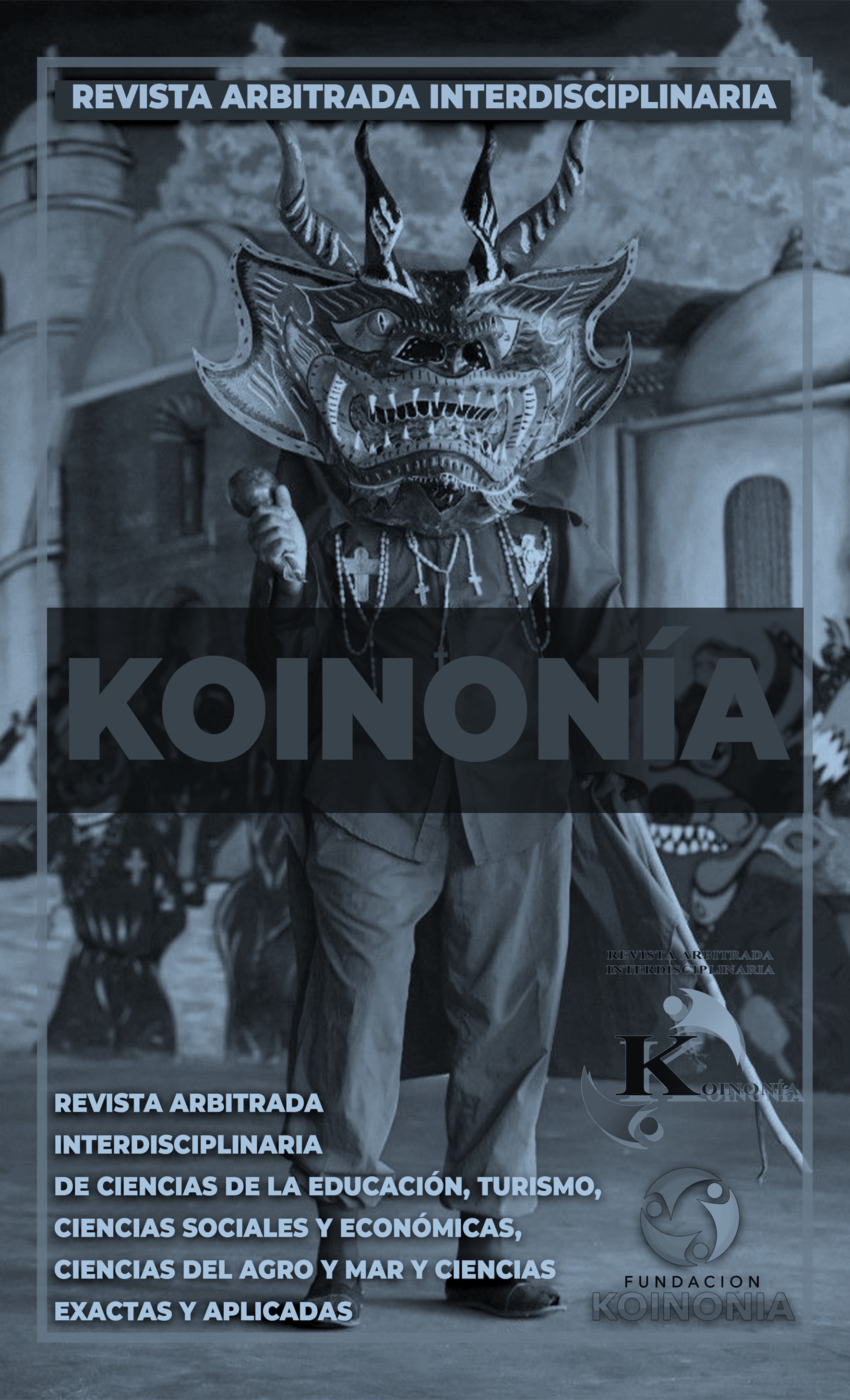Percepción del paciente: consentimiento informado en urgencias en Oficina Técnica 01D07 Camilo Ponce Enríquez
DOI:
https://doi.org/10.35381/r.k.v10i1.4791Palabras clave:
Atención, comunicación, paciente, percepción, hospital, (Tesauro UNESCO).Resumen
La investigación tuvo objetivo analizar la percepción de los usuarios sobre su aplicación en la Oficina Técnica 01D07 Camilo Ponce Enríquez durante el año 2025. Se realizó un estudio mixto, no experimental, transeccional y correlacional, con una muestra probabilística de 226 pacientes. Se utilizó una versión adaptada del cuestionario QuIC-PT y se realizaron cinco entrevistas a profesionales de salud. Los resultados reflejaron una percepción mayoritariamente favorable: los usuarios valoraron la claridad de la información, la explicación previa y la posibilidad de elegir. La satisfacción se asoció a la disponibilidad de tiempo y la participación activa. Se concluye que el consentimiento informado mejora cuando se garantiza comunicación efectiva, tiempo suficiente y registro adecuado. De igual manera el consentimiento informado en urgencias es fundamental para resguardar la autonomía del paciente mediante una información clara, oportuna y comprensible; se recomienda simplificar formatos y fortalecer las habilidades comunicativas del personal sanitario.
Descargas
Citas
Abad, D., Peñaherrera, D., & Campos, S. (2023). Consentimiento informado. Metro Ciencia, 31(2), 3–10. https://n9.cl/m8kaw
Alzoubi, H., Karasneh, R., Irshaidat, S., Abuelhaija, Y., Aburouq, S., Omeish, H., Serhan, H. (2023). Exploring the Use of YouTube as a Pathology Learning Tool and Its Relationship With Pathology Scores Among Medical Students: Cross-Sectional Study. JMIR Medical Education, 9(45372), 1-12. https://n9.cl/ggqiom
Anjali, G., y Jayashree, S. (2023). Informed consent – Ethical doctrine and a legal mandate. Current Medicine Research and Practice, 13(6), 286-291. https://doi.org/10.4103/cmrp.cmrp_82_23
Asitimbay , M., y Molleturo, J. (2024). La relevancia del consentimiento informado en la responsabilidad penal médica: Sistemas jurídicos en la Comunidad Andina. Digital Publisher CEIT, 10(1), 20-36. https://doi.org/10.33386/593dp.2025.1-1.2999
Charles, L., Brémault, S., Pike, A., Vokey, C., Kilkenny, T., Johnson, M., Parmar, J. (2021). Decision-making capacity assessment education. Journal of the American Geriatrics Society, 9-13. https://doi.org/10.1111/jgs.17067
Devia, G., Vargas, J., y Esmeral, N. (2024). Impact of the Implementation of a Low-Complexity Emergency Care Protocol in the Patient Experience at a Level 3 Academic Institution in Colombia. Open Access Emerg Med, 18(16), 329-336. https://doi.org/10.2147/OAEM.S478196
Eastman, M., Kalesnikava, V., y Mezuk, B. (2022). Experiences of care coordination among older adults in the United States: Evidence from the Health and Retirement Study. Patient Education and Counseling, 105(7), 2429-2435. https://n9.cl/81pvi
Edwards, C., y Abujarad, F. (2023). Digital Informed Consent for Older Adults in Emergency Department Research. Health Informatics and Biomedical Engineering Applications, 78, 1-10. https://doi.org/10.54941/ahfe1003449
Ferreira, D., Vieira, I., Pedro, M., Caldas, P., y Varela, M. (2023). Patient Satisfaction with Healthcare Services and the Techniques Used for its Assessment: A Systematic Literature Review and a Bibliometric Analysis. Healthcare (Basel)., 11(5), 639. https://doi.org/10.3390/healthcare11050639
Fischer, A., Eienbröker, L., Möckel, M., Hanses, F., Hans, F., Wolfrum, S., Slagman, A. (2025). Broad consent in the emergency department:a cross sectional study. Archives of Public Health, 83(44), 1-17. https://n9.cl/o5jo1
Kinney, A., y Sankaranarayanan, B. (2021). Effects of Patient Portal Use on Patient Satisfaction: Survey and Partial Least Squares Analysis. J Med Internet Res, 23(8). https://doi.org/10.2196/19820
Kituuka, O., Munabi, I., Mwaka, E., Galukande, M., Harris, M., y Sewankambo, N. (2023). Informed consent process for emergency surgery: A scoping review of stakeholders’ perspectives, challenges, ethical concepts, and policies. SAGE Open Med, 11, 1-14. https://n9.cl/zuljw
Laurijssen, S., Van-der-Graff, R., Van-Djik, W., Schuit, E., Groenwold, R., Grobbee, D., y de-Vries, M. (2022). When is it impractical to ask informed consent? A systematic review. Clinical Trials, 19(5). https://n9.cl/5bg99
Li, Y., Zhang, H., Shen, X., Sun, B., y Qu, K. (2024). Evaluating building performance and patient well-being in healthcare facilities: A literature review of environmental quality and design strategies. Journal of Building Engineering, 98(111031). https://doi.org/10.1016/j.jobe.2024.111031
Markwalter, D., y Kennedy, S. (2025). Capacity and Surrogate Decision-making in the Emergency Department. Emerg Med Clin North Am, 43(2), 317-329. https://n9.cl/lsn6r
Memon, Asif, Shah, Kiran, Khoso, Tofique, Edwards. (2024). Clinicians’ experiences of obtaining informed consent for research and treatment: a nested qualitative study from Pakistan. BMC Medical Ethics , 25(131). https://n9.cl/bga90
Meneses, M., Fernández, V., Suyo, J., Ocupa, H., Grijalva, R., y Ocupa, G. (2025). Enhancing Healthcare Efficiency: The Relationship Between Effective Communication and Teamwork Among Nurses in Peru. Nurs Rep, 15(2). https://n9.cl/495l28
Oben, P. (2020). Understanding the Patient Experience: A Conceptual Framework. J Patient Exp, 7(6), 906-910. https://doi.org/10.1177/2374373520951672
Saliba, T., Garbin, A., Garbin, C. y Téllez, M. (2021). Percepción de los inmigrantes: consentimiento informado y acceso a servicios de salud. Revista Bioética, 29(3), 600–605. https://doi.org/10.1590/1983-80422021293495
Serrano, F. (2022). El consentimiento informado como un continuo narrativo. Revista de Bioética y Derecho, 1(54), 83-102. https://n9.cl/2bnij
Sharkiya, S. (2023). Quality communication can improve patient-centred health outcomes among older patients: a rapid review. BMC Health Services Research, 23(886). https://doi.org/10.1186/s12913-023-09869-8
Smith, M., y Mackie, E. (2025). Do vaccine mandates impair the voluntariness of informed consent? Journal of Medical Ethics, 0, 1-5. https://doi.org/10.1136/jme-2025-110950
Tarantini, G., Fraccaro, C., Porzionato, A., Van-Mieghem, N., Treede, H., Shammas, N., . . . Ferrara, S. (2025). Informed Consent and Shared Decision-Making in Modern Medicine: Case-Based Approach, Current Gaps and Practical Proposal. The American Journal of Cardiology, 241, 77-83. https://n9.cl/wgbiy
Thirumoorthy, T. (2023). Core concepts of consent in medical practice. SMJ Singapore Medical Journal, 64(6), 398-402. https://n9.cl/71r0w8
Twimukye, A., Nabukenya, S., Kawuma, A., Bayigga, J., Nakijoba, R., Asiimwe, S., . . . Waitt, C. (2024). 'Some parts of the consent form are written using complex scientific language’: community perspectives on informed consent for research with pregnant and lactating mothers in Uganda. BMC Med Ethics, 25(149). https://n9.cl/fhamz1
Publicado
Cómo citar
Número
Sección
Licencia
Derechos de autor 2025 Rossmary Nichole Cajo-Guerrero, Edisson Javier Ortiz-Andrade

Esta obra está bajo una licencia internacional Creative Commons Atribución-NoComercial-CompartirIgual 4.0.
CC BY-NC-SA : Esta licencia permite a los reutilizadores distribuir, remezclar, adaptar y construir sobre el material en cualquier medio o formato solo con fines no comerciales, y solo siempre y cuando se dé la atribución al creador. Si remezcla, adapta o construye sobre el material, debe licenciar el material modificado bajo términos idénticos.
OAI-PMH URL: https://fundacionkoinonia.com.ve/ojs/index.php/revistakoinonia/oai.









